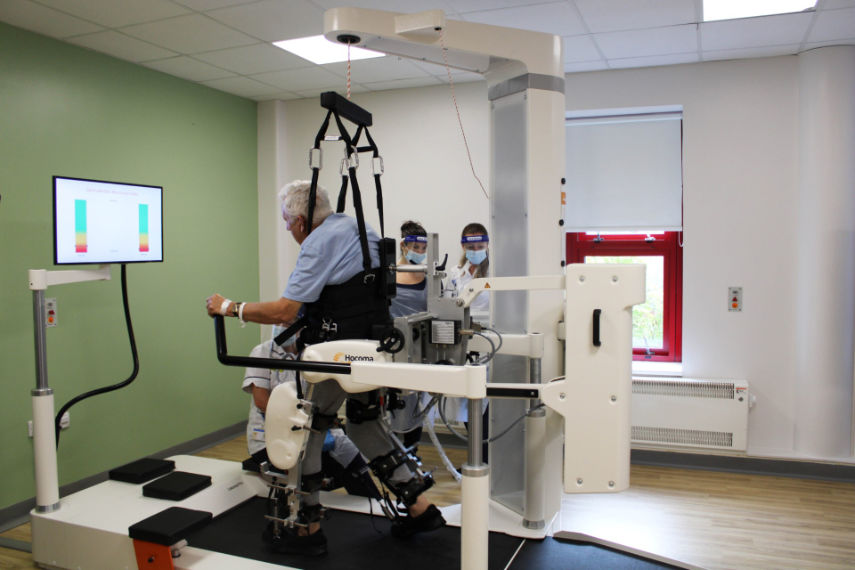Anytime I see 'care' in any stroke press release I know the stroke medical world is not
willing to disclose actual results because they are so fucking bad, it
wouldn't look good, so misdirection is used. Don't fall for that
misdirection!
Big fucking whoopee.
But you tell us NOTHING ABOUT RESULTS.
They remind us they 'care' about us multiple times but never tell us
how many 100% recovered. You have to ask yourself why they are hiding
their incompetency by not disclosing recovery results. ARE THEY THAT FUCKING BAD?
Three measurements will tell me if the stroke medical world is possibly not
completely incompetent; DO YOU MEASURE ANYTHING? I would start cleaning
the hospitals by firing the board of directors, you can't let
incompetency continue for years at a time.
There is no quality here if you don't measure the right things.
-
tPA full recovery? Better than 12%?
-
30 day deaths? Better than competitors?
rehab full recovery? Better than 10%?
rehab full recovery? Better than 10%?
You'll want to know results so call that hospital president(whomever that is) RESULTS are; tPA efficacy, 30 day deaths, 100% recovery. Because there is no point in going to that hospital if they are not willing to publish results.
In my opinion this partnership allows stroke hospitals to continue with their tyranny of low expectations and justify their complete failure to get survivors 100% recovered. Prove me wrong, I dare you in my stroke addled mind. If your stroke hospital goal is not 100% recovery you don't have a functioning stroke hospital.
All you ever get from hospitals are that they are following guidelines; these are way too static to be of any use. With thousands of pieces of stroke research yearly it would take a Ph.D. level research analyst to keep up, create protocols, and train the doctors and therapists in their use.
If your stroke hospital doesn't have that, you don't have a well functioning stroke hospital, you have a dinosaur.
Read
up on the guidelines yourself.
“What's measured, improves.” So said management legend and author Peter F. Drucker
The latest invalid chest thumping here:
Stroke patients in Dorset to benefit from enhanced care
Specialist support services are being introduced in Dorset to help people recover from the debilitating effects of a stroke says the NHS.

Ahead of World Stroke Day on Sunday 29 October, local NHS trusts have outlined the extra resources.
These will be made available to give people the best chance of making a full recovery.
New-look stroke units are on the way in the east and west of the county, while enhanced community rehabilitation services will ensure local stroke patients have access to treatment tailored to their needs.
Next year will see the introduction of a ‘hyper acute stroke service’ in the west of Dorset at Dorset County Hospital, providing 24/7 acute stroke care for the first time.
Patients will be monitored by a team of stroke specialists on the new unit for up to the first 72 hours – longer if required – until they are stable enough to be transferred to the hospital’s main stroke unit. Visit www.dchft.nhs.uk/service/stroke-unit/ for more information.
More than 100,000 people suffer a stroke in the UK every year. Strokes can leave people with partial paralysis, impaired speech, balance and mobility problems, and other life-changing impacts.
Acute hospital services are critical in the first 72 hours to maximise the patient’s chances of recovery but equally important is the rehabilitation that follows.
And while stroke patients in north and west Dorset have previously been limited to two weeks of rehab support following discharge from hospital, a new-look community service means that people will receive specialist care to help meet their needs and achieve their goals as quickly as possible.
This care – provided by Dorset HealthCare – is available to people who have just had a stroke or those still struggling with the effects of a stroke in the past. And any GP, health professional or social care worker can refer people to the service.
Luisa Hardy, Dorset HealthCare’s adult community stroke and neuro services manager, said: “This approach is in line with new national stroke guidelines, and is a huge step forward for people in north and west Dorset.
“People are not passed off between teams, but have their specific needs met by one team of occupational therapists, physios, speech therapists, nurses, psychologists and others who are specially trained in stroke care.
“While we have a dedicated stroke rehab unit at the Yeatman Hospital in Sherborne, our staff also support people in their own homes.”
You can watch a short video clip about the new-look community service: https://youtu.be/74zDAvzBlwQ
Meanwhile, in the east of the county University Hospitals Dorset is expanding the stroke recovery unit at its Royal Bournemouth site.
This will increase the number of beds to 43, and give patients access to improved facilities and cutting-edge technology such as the Walkerbot – pioneering equipment, which helps people relearn how to walk.
Work towards preventing strokes also remains a priority for local NHS services. Dr Ben Oxley, GP partner at Poole’s Adam Practice, said: “I would encourage everyone to ensure they limit their chances of suffering a stroke by staying active and having regular blood pressure checks.
“High blood pressure is a major cause of strokes in adults, so it’s important get it treated promptly.”
For more advice on reducing your chances of suffering a stroke, visit https://nhsdorset.nhs.uk/adopt-healthy-habits-to-reduce-your-risk-of-stroke
No comments:
Post a Comment